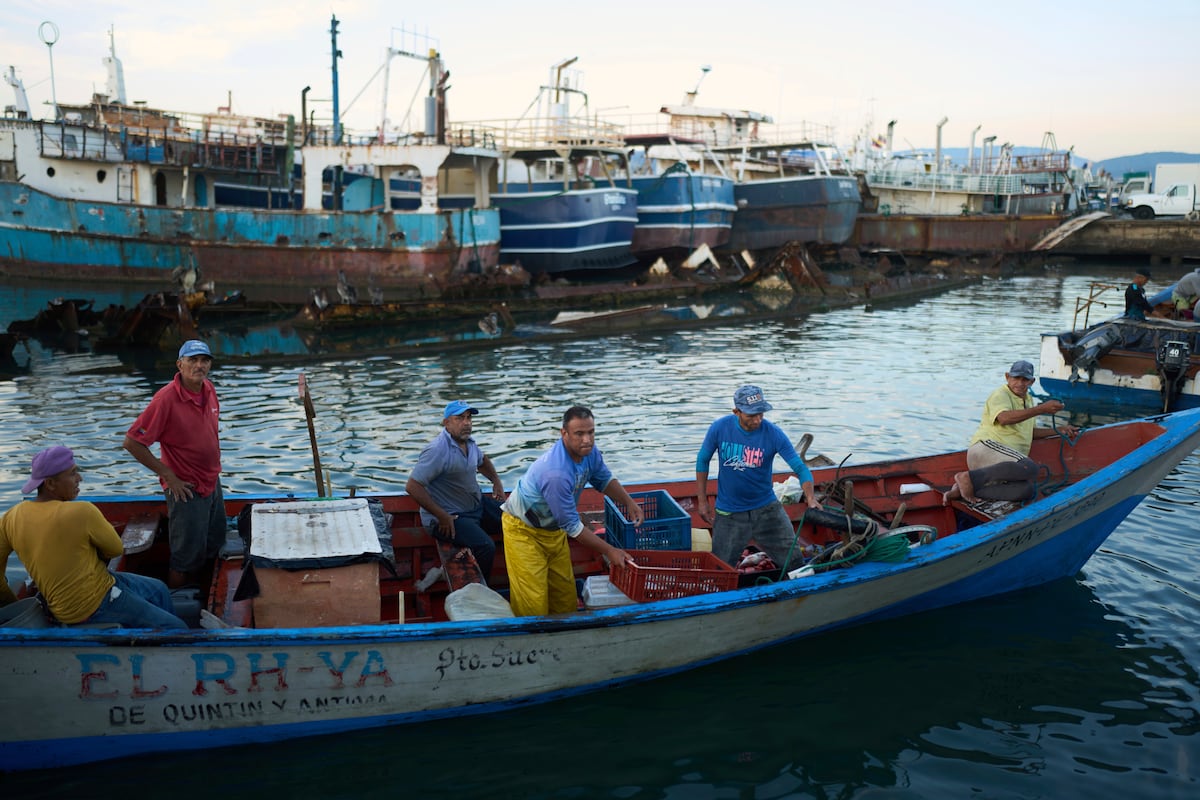US Military Strike's Decade-Long Impact on Venezuelan Fishing Communities
Venezuelan fishing communities have seen their industry decline and boats repurposed for smuggling, a decade after a US military strike disrupted their livelihoods.
Subscribe to unlock this story
We really don't like cutting you off, but you've reached your monthly limit. At just $5/month, subscriptions are how we keep this project going. Start your free 7-day trial today!
Get StartedHave an account? Sign in
Overview
- A US military strike occurred a decade ago off the coast of Venezuela, targeting a vessel allegedly carrying drugs and gang members, according to local fishermen and leaders.
- This military action significantly disrupted life in impoverished Venezuelan fishing communities located along the affected coastal areas, impacting their traditional livelihoods.
- Following the strike, the Venezuelan fishing industry experienced a severe decline, resulting in substantial job losses and a reduction in living wages for local residents.
- The economic hardship forced many fishing boats to be repurposed from their traditional use to engage in various illicit activities, including smuggling.
- These repurposed boats are now reportedly used for trafficking migrants, humans, wildlife, and fuel, further impacting the stability and safety of the affected communities.
Report issue

Read both sides in 5 minutes each day
Analysis
Center-leaning sources frame this story by emphasizing the severe economic hardship in Venezuela, portraying local communities as desperate victims forced into illicit activities due to government failures and lack of alternatives. The U.S. military strike is presented as exacerbating these "asphyxiating conditions," with sources questioning the U.S. administration's justification and the scope of the alleged threat.
Articles (3)
Center (3)
FAQ
The US military strike targeted a vessel allegedly carrying drugs and gang members, as part of efforts to combat drug trafficking originating from Venezuela.
The strike significantly disrupted local livelihoods, causing a severe decline in the fishing industry, substantial job losses, and reduced wages for residents of impoverished coastal communities.
Due to the economic hardships and loss of traditional fishing jobs caused by the strike, many boats were repurposed for illicit activities such as trafficking migrants, humans, wildlife, and fuel to sustain local incomes.
Venezuelan authorities, including Interior Minister Diosdado Cabello and President Maduro, have downplayed the country's role in drug trafficking and announced military deployments to combat trafficking along border and coastal regions.
The strikes marked a major escalation in US efforts against drug trafficking, increasing tensions between the US and Venezuela, with Venezuela condemning the actions as a severe threat to regional stability.
History
- This story does not have any previous versions.

